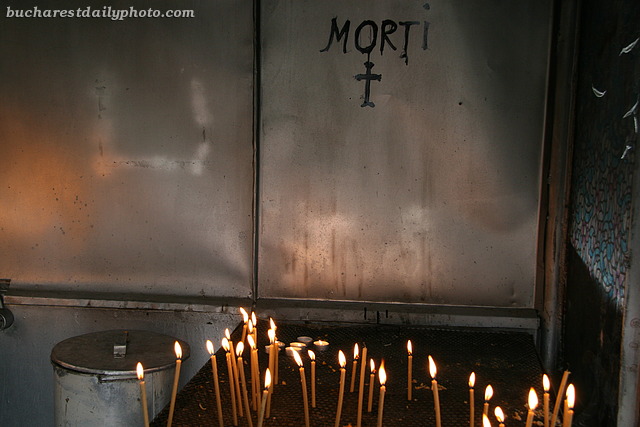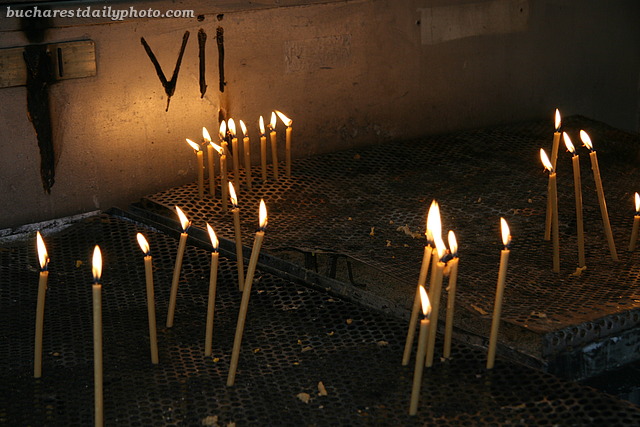Nov 022009
Today’s two photos are part of the St. Dumitru Chuch series. In the Eastern Orthodox church, candles are used in religious ceremonies or are lit by worshippers as offerings. In Bucharest churches the candle cabinets are usually placed outside the church, to protect it from fire and damage by smoke. The cabinets can be small or large, usually with doors to protect the candles from rain or from blowing out when it’s windy outside. As you can see in the photos, the cabinets are marked with “Dead” (“Morţi” in Romanian) or “Alive” (“Vii” in Romanian) as you can either light a remembrance candle for somebody who died or one to pray for help for the soul of someone who’s alive and going through harsh times.


How interesting that the candles are tall and skinny. I'm used to seing short fat ones here in Canada. 😉
I think you've captured the candle light well.
In Latin 'alive' would be vivi if referred to more than a person and, as 'morti', it is the same in Latin and Italian. Are you sure there isn't any symbolism about the number seven?
These are haunting shots. The textures, color, and light from the candles coming for such an interesting effect.
Vogon Poet: Number seven? No, not that I'm aware. Why?
As ever, I am enjoying the photo documentary of Romanian life. At first, I thought you chose this topic because of All Saints Day on November 1.Then I realised this date probably has no significance in the Eastern Orthodox calendar.
AB: Thanks. You're right, the date it's not in the orthodox calendar but it is celebrated in some parts of Romania as "The Day of the Dead", especially in Transylvania.
Andreea: It would have to be Transylvania!
AB 🙂
@ Andreea – If I see Vii the only Latin thing that comes to me is seven, but you are surely right and maybe a 'v' was lost…
Please forgive me for my noxious questions, but I like to explore everything that sound familiar in your tradition. Thanks for your patience!
Vogon Poet: Don't worry, I like your questions, they make me think about things that I usually take for granted. The singular to vii is viu (masculin) or vie (feminin) and according to the Romanian dictionary it comes from the Latin vivus. I guess a v just got lost on the way 🙂